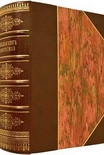Myths and Legends of China by E. Werner (free ebook reader for iphone TXT) 📗

- Author: E. Werner
Book online «Myths and Legends of China by E. Werner (free ebook reader for iphone TXT) 📗». Author E. Werner
At last the time for their reunion drew near, and only one fear possessed the loving wife. What if it should rain? For the River of Heaven is always full to the brim, and one extra drop causes a flood which sweeps away even the bird-bridge. But not a drop fell; all the heavens were clear. The magpies flew joyfully in myriads, making a way for the tiny feet of the little lady. Page 191Trembling with joy, and with heart fluttering more than the bridge of wings, she crossed the River of Heaven and was in the arms of her husband. This she did every year. The husband stayed on his side of the river, and the wife came to him on the magpie bridge, save on the sad occasions when it rained. So every year the people hope for clear weather, and the happy festival is celebrated alike by old and young.
These two constellations are worshipped principally by women, that they may gain cunning in the arts of needlework and making of fancy flowers. Water-melons, fruits, vegetables, cakes, etc., are placed with incense in the reception-room, and before these offerings are performed the kneeling and the knocking of the head on the ground in the usual way.
The Twenty-eight Constellations
Sacrifices were offered to these spirits by the Emperor on the marble altar of the Temple of Heaven, and by the high officials throughout the provinces. Of the twenty-eight the following are regarded as propitious—namely, the Horned, Room, Tail, Sieve, Bushel, House, Wall, Mound, Stomach, End, Bristling, Well, Drawn-bow, and Revolving Constellations; the Neck, Bottom, Heart, Cow, Female, Empty, Danger, Astride, Cock, Mixed, Demon, Willow, Star, Wing, are unpropitious.
The twenty-eight constellations seem to have become the abodes of gods as a result of the defeat of a Taoist Patriarch T’ung-t’ien Chiao-chu, who had espoused the cause of the tyrant Chou, when he and all his followers were slaughtered by the heavenly hosts in the terrible catastrophe known as the Battle of the Ten Thousand Immortals. Chiang Tzŭ-ya as a reward conferred on Page 192them the appanage of the twenty-eight constellations. The five planets, Venus, Jupiter, Mercury, Mars, and Saturn, are also the abodes of stellar divinities, called the White, Green, Black, Red, and Yellow Rulers respectively. Stars good and bad are all likewise inhabited by gods or demons.
A Victim of Ta Chi
Concerning Tzŭ-wei Hsing, the constellation Tzŭ-wei (north circumpolar stars), of which the stellar deity is Po I-k’ao, the following legend is related in the Fêng shên yen i.
Po I-k’ao was the eldest son of Wên Wang, and governed the kingdom during the seven years that the old King Was detained as a prisoner of the tyrant Chou. He did everything possible to procure his father’s release. Knowing the tastes of the cruel King, he sent him for his harem ten of the prettiest women who could be found, accompanied by seven chariots made of perfumed wood, and a white-faced monkey of marvellous intelligence. Besides these he included in his presents a magic carpet, on which it was necessary only to sit in order to recover immediately from the effects of drunkenness.
Unfortunately for Po I-k’ao, Chou’s favourite concubine, Ta Chi, conceived a passion for him and had recourse to all sorts of ruses to catch him in her net; but his conduct was throughout irreproachable. Vexed by his indifference, she tried slander in order to bring about his ruin. But her calumnies did not at first have the result she expected. Chou, after inquiry, was convinced of the innocence of Po. But an accident spoiled everything. In the middle of an amusing séance the monkey which had been given to the King by Po perceived some Page 193sweets in the hand of Ta Chi, and, jumping on to her body, snatched them from Her. The King and his concubine were furious, Chou had the monkey killed forthwith, and Ta Chi accused Po I-k’ao of having brought the animal into the palace with the object of making an attempt on the lives of the King and herself. But the Prince explained that the monkey, being only an animal, could not grasp even the first idea of entering into a conspiracy.
Shortly after this Po committed an unpardonable fault which changed the goodwill of the King into mortal enmity. He allowed himself to go so far as to suggest to the King that he should break off his relations with this infamous woman, the source of all the woes which were desolating the kingdom, and when Ta Chi on this account grossly insulted him he struck her with his lute.
For this offence Ta Chi caused him to be crucified in the palace. Large nails were driven through his hands and feet, and his flesh was cut off in pieces. Not content with ruining Po I-k’ao, this wretched woman wished also to ruin Wen Wang. She therefore advised the King to have the flesh of the murdered man made up into rissoles and sent as a present to his father. If he refused to eat the flesh of his own son he was to be accused of contempt for the King, and there would thus be a pretext for having him executed. Wen Wang, being versed in divination and the science of the pa kua, Eight Trigrams, knew that these rissoles contained the flesh of his son, and to avoid the snare spread for him he ate three of the rissoles in the presence of the royal envoys. On their return the latter reported this to





Comments (0)